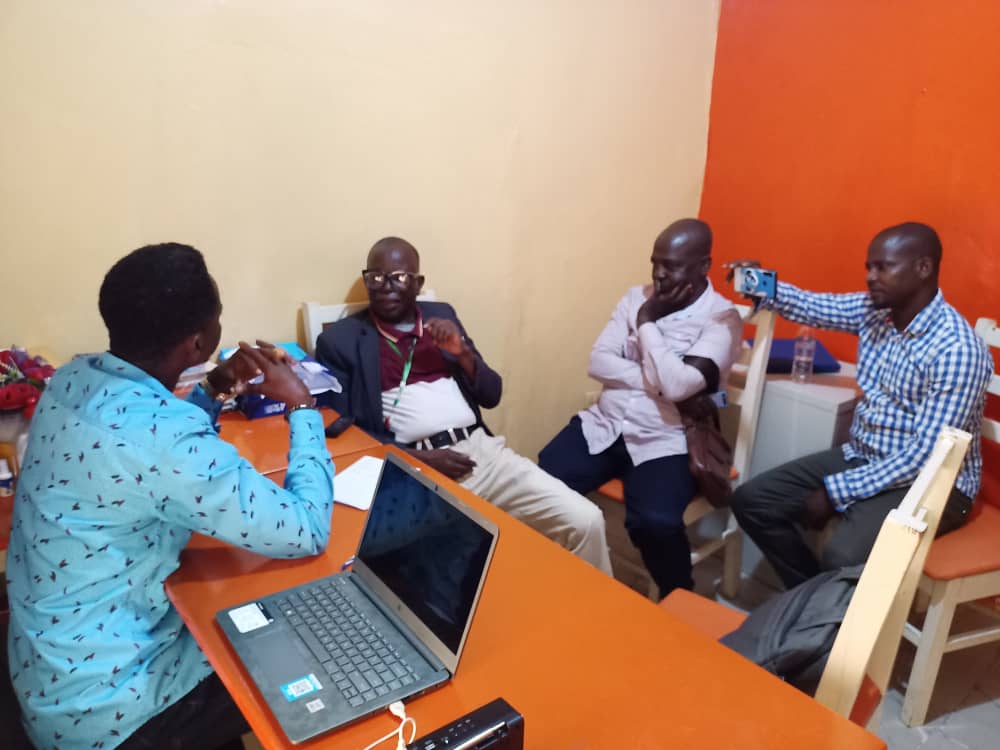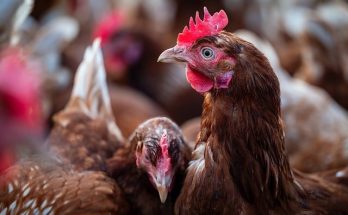To improve animal health and have a beneficial influence on farmer livelihoods, the Livestock Industry Foundation for Africa (LIFA) and the Zoetis Foundation held a one-day training workshop titled “Knowledge Update on Poultry Health and Nutrition” for Liberian poultry farmers and stakeholders.
The training took place on November 8th and 10th, 2022, at the YMCA Conference Hall, Broad Street, Monrovia, and at the Booker Washington Institute, Kakata, Margibi County, Liberia.
Over 547 people participated in the knowledge update on poultry health and nutrition held in Liberia, with a gender distribution of 26.7% female and 73.3% male. (To view the training program, go to https://www.facebook.com/Lifa.lifango)
The training program concentrated on the significant difficulties that sub-Saharan African poultry producers face. The guest speaker, Dr. Stephen Adejoro, focused on “Managing Vaccination Failure in Poultry Farms in a Humid Tropical Climate; Case Studies from Nigeria” in his lecture.
Beginning with an illustration of the situation farmers in West Africa were in, he went on to discuss the significance of the training program and how it had a profoundly good effect on the farmers who participated in it in the countries visited among those chosen for the 2022 program.
He talks about the numerous types of diseases that impact the chicken industry and potential remedies. He continued his explanation by inquiring as to the reasons given by farmers as to why a certain disease cannot be cured or mitigated after vaccinations have been given to birds. The extent of farmers’ comprehension of the reasons why vaccines fail was then determined by a pilot survey that he carried out.
Over 80% of vaccine failures are caused by the nature or state of the feed production ingredients, Dr. Adejoro explained to the audience. He spoke on the challenges mycotoxin has posed to the chicken industry. He determined that mycotoxin was the primary cause of vaccine failure. Mycotoxins are divided into small and large molecules, according to Dr. Adejoro. Aflatoxins, ochratoxin A, and T2 toxin are classified as small compounds, and zearalenone, nivalenol/deoxynivalenol, and fuminosin are mentioned as large molecules.
He described the big molecules as the farmers’ enemy. In his presentation, he outlined the negative effects that mycotoxins have on the poultry industry, including rising production costs, rising mortality, decreasing bird weight, decreasing farmer income, decreasing egg production, decreasing feed intake, decreasing hatchability, and raising infertility.
He came to the conclusion that there may still be more vertically and horizontally transmitted aflatoxin-contaminated DOC in the area due to ignorance of or improper application of toxin binders as a preventative measure and strategically in health management. He stated in his summary that the poultry sector must concentrate on enhancing sustainability and health status in order to accomplish the region’s planned expansion.
Mr. Iliasu Salihu gave the second presentation, which focused on the “importance of record keeping in poultry management for decision making.” The main topics of his talk include what record keeping is, the different types of poultry farm records that can be kept, the records that should be kept by a farm, the value of record keeping, and the benefits of record keeping.
He claimed that the need of keeping records for poultry cannot be overstated. He emphasized that by keeping account of the feed, water, medications, and other supplies that are used on their farm, farmers can maintain tabs on what happens to their hens and how they are doing. He covered in his presentation how an effective record-keeping system helps with flock management and improves all-around management skills.
He emphasized the different methods for keeping records on chicken farms, including using a notepad, electronic sheets, and computer software. Different records that can be preserved for tracking purposes were demonstrated to the farmers, including
- Flock’s general health and performance
- Mortality record
- Diseases and parasites affecting the birds.
- Food and water each birds gets
- The medications given to the birds
- Inventory record
- Cost of production/sales record
The speaker continues by outlining the benefits of record keeping, which include: strengthening farm integrity, enhancing decision-making, assisting in planning, assisting in tracking farmers’ costs, assisting in recognizing difficulties, and assisting in monitoring and assessment. He divides farm documents into three groups: management documents, finance documents, and production documents.
In his presentation, he comes to the conclusion that the poultry record system is an essential tool for the effective management of poultry businesses. A farmer must also keep a record of every key aspect of his or her poultry operation.
LIFA will continue to be proactive in organizing trainings for Livestock Farmers/Stakeholders towards improving the Livestock Industry in Sub-Sahara Africa. We are available for collaborations in areas that may require education, training, advocacy, awareness and policy implementation.




















